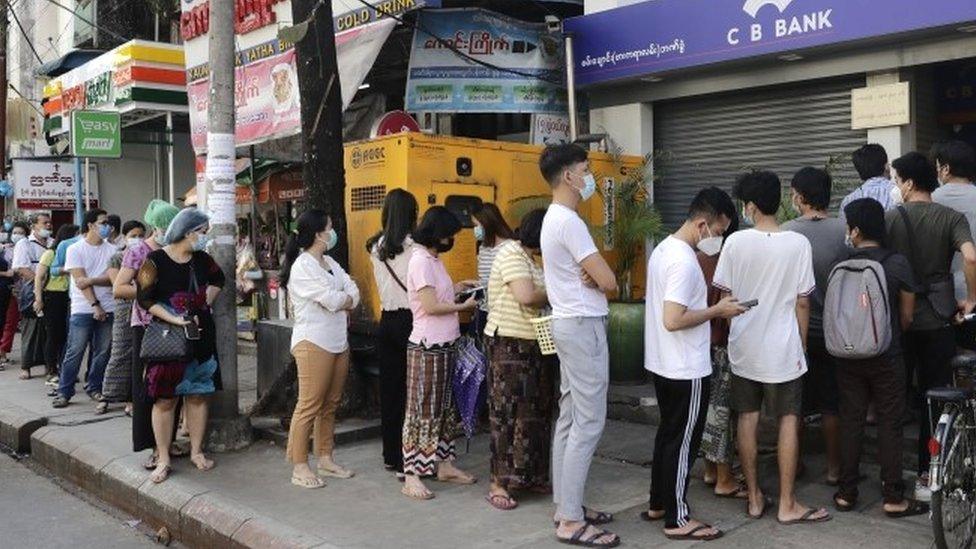Myanmar: What was it like growing up under military rule?
- Published
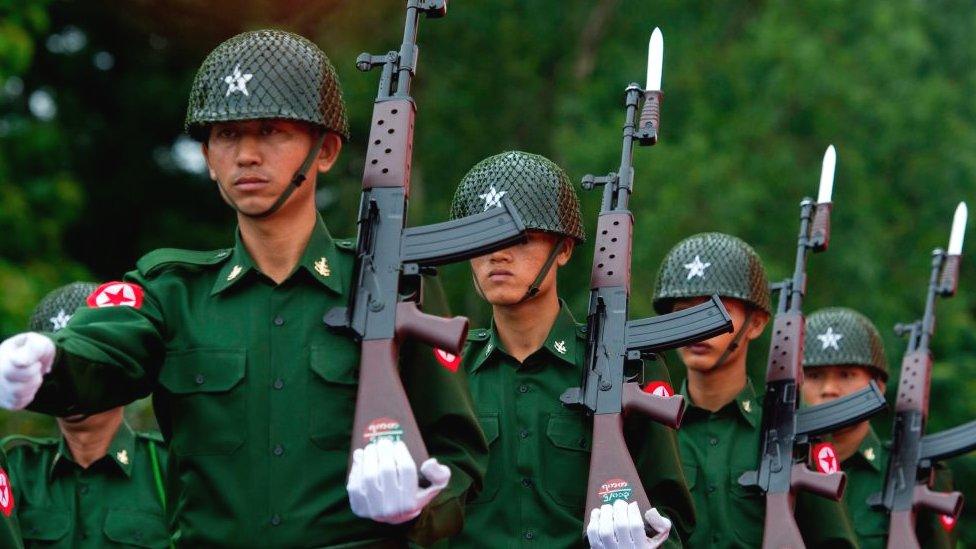
It's been a day since Myanmar's military launched a coup and detained Aung San Suu Kyi.
But this is not the first time a military coup has taken place in Myanmar, also known as Burma. In fact for many, it's reminiscent of one that took place in the late 1980s.
"It kinda felt like deja vu, it's like we're back to square one," a 25-year-old told the BBC.
Here's what it was like growing up under junta rule.
'I grew up with fear'
Wai Wai Nu was five when her father was snatched before her eyes.
A political activist affiliated with civilian leader Aung San Suu Kyi, he was bundled up into a truck and taken away.
He may have been freed after a month, but even now, she can remember how she felt that day.
"I grew up with that constant fear," she said. "I was always scared as a child. There were always soldiers outside and I can still picture my father taken away from me. I remember we would put in earphones and listen to the radio very softly."
Wai Wai - who is a Rohingya, one of the most persecuted ethnic minorities in the country - says her father was always being chased.
When she was 10, the family decided to move to the then capital Yangon (Rangoon).
"I did see a bit more liberty in Yangon," she said. "In Rakhine, the majority of the population are Rohingya but in Yangon, it's more multicultural with different languages. But a lot of people in Yangon have no knowledge of what's happening with ethnic minorities."
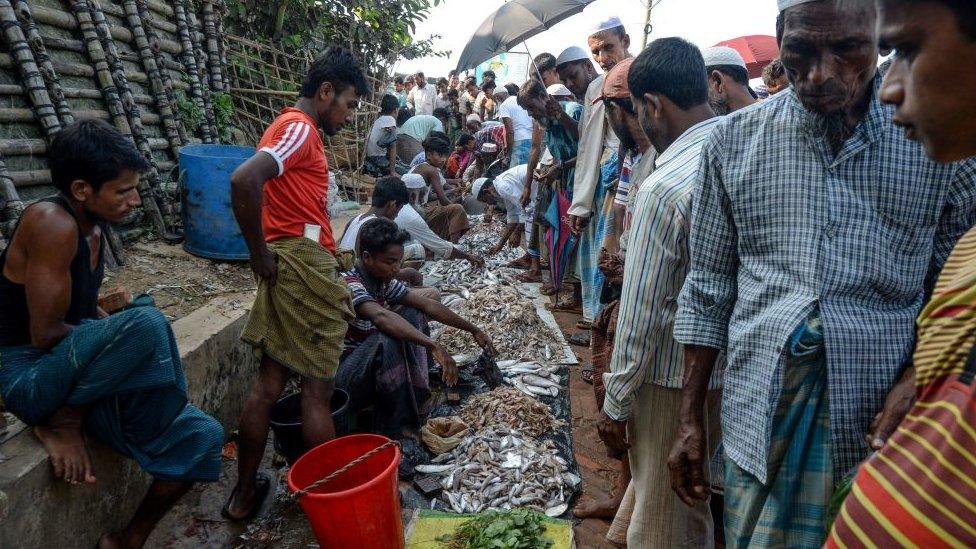
Hundreds of thousands of Rohingyas fled to Bangladesh and live in refugee camps - with little prospect of going home
At that time, life seemed to her to be pretty normal.
"We would go to school then go home. At school, I remember we had to welcome different generals and pay tribute to them. The education system is simply, military propaganda."
But then, when she was 18, her father was targeted again, and the entire family was put into jail, where they remained for seven years.
Her crime? Being the daughter of a political activist.
After she was freed, she went on to go to university and today works as a human rights activist, campaigning especially for equal rights for women and for the Rohingya.
"Growing up, Rakhine state was poor but it wasn't bad, people were still able to run their businesses," she said. "It's not like how it is today."
An eavesdropper on the phone
Phyo (not her real name) had a very different experience growing up.
Coming from a more affluent family, the Yangon-born and bred 25-year-old says she was largely shielded from what was happening outside.
But even as a child, some things stood out.
"When you spoke on the phone, you could hear a sound in the background - someone watching TV or just people talking. It was the military listening to you," she said.
"It wasn't scary, because when you're born into it, you don't know the alternative but our parents would tell us not to talk on the phone."
Phyo was born in 1995, just three years after military dictator Than Shwe came to power. She describes the year she was born as "the deepest height of military rule after the '88 revolution".
In school she says, the school curriculum was one that was very selective in what they taught students.
"They didn't teach sensitive stuff. For example if in the US they might make you critique a political situation, we would instead be doing reading comprehension about Buddhist tales," she said. "Or you would learn that the Burmese kings were really great until it was all taken away by the British."
The British controlled the country from 1824 to 1948.
She was, however, largely sheltered from the country's political happenings until the age of 12.
"I still remember it was my 12th birthday when the Saffron Revolution happened," she said. "That's when it hit me - that we are living in a dictatorship."
The so-called Saffron Revolution was a series of street protests in Myanmar in 2007 which saw thousands of the country's monks rise up against the military regime.
Monks are revered by most people in Buddhist-majority Myanmar, but many of them were jailed during the protests, and there are reports of at least three monks being killed by security forces.
"I saw a lot of protesters outside my house, and there was this tension and fear in the air, there were soldiers everywhere," Phyo said.
Growing up as a teenager, cell phones were largely non-existent - used only by those who could afford them, she says.
"They made cell phones very expensive, so no one could afford them. Back then people only had landlines, and sometimes there would be electricity blackouts so you couldn't even talk to anyone."
Phyo eventually went on to attend university overseas, where she realised how different some things were in the West compared with Myanmar.
"I remember if there was a police officer my friends would be like, that's so scary!" she said. "But for me, it's so normal for there to be soldiers everywhere."
On the morning of 1 February, she says she woke up at 6am to dozens of notifications on her phone.
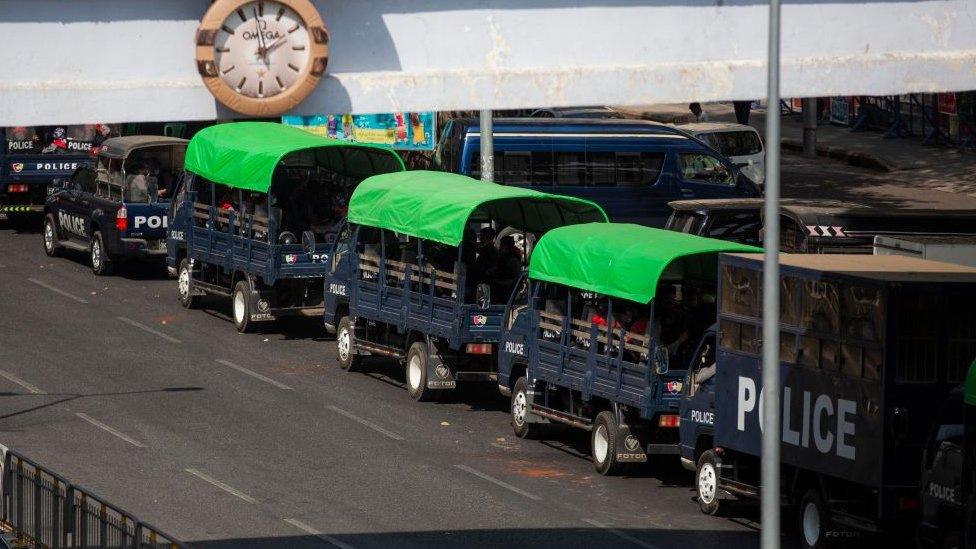
As February dawned, Myanmar woke up to news that the military was seizing control
"You just wake up and suddenly your whole government is arrested," she said.
"When I was young, you would wake up to news like this - people suddenly going to prison, or people disappearing. It kinda felt like déjà vu, it's like we're back to square one - how things used to be. All the work we've done, any legitimacy we've given to the government. It's all gone."
Living in silence
Kyaw Than Win, 67, still remembers where he was when the military coup happened in 1988.
He lived in Min Bu township, a city in central Myanmar. He recalls that there was "shooting and violence" in other places, but added that Min Bu remained relatively quite and calm.
For most people, he said, life continued as normal - and speaking out was not an option.
"We went back to work. Some civil servants who were involved in leading the protests were dismissed and some demoted and transferred, others were detained," he told the BBC.
"But for civil servants like me, we got back to work like normal. We had to force ourselves to live life in silence out of fear."
Life continued mostly like that until the 2015 elections - the country's first national vote in decades. Aung San Suu Kyi's National League for Democracy won a landslide victory - ending nearly 50 years of military rule.
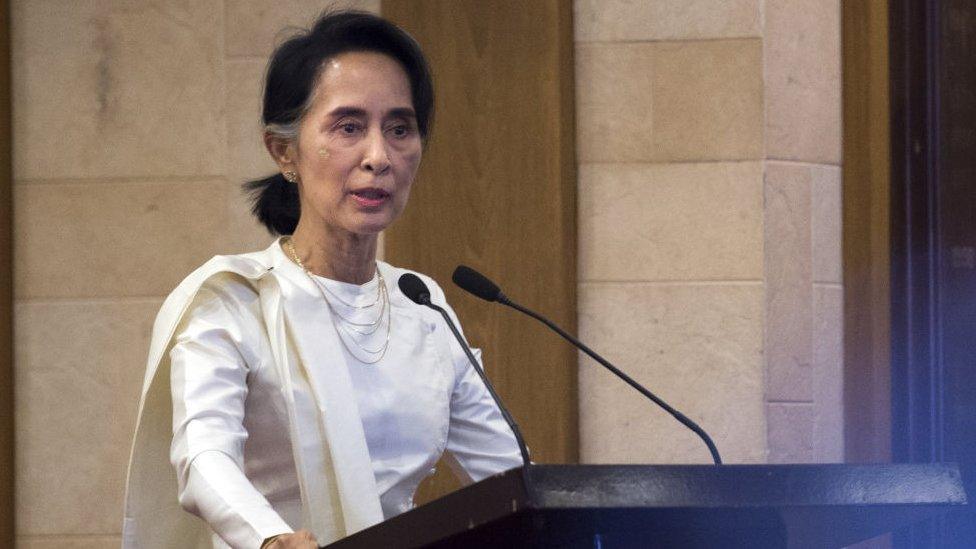
Aung San Suu Kyi led the NLD to victory in 2015
"I was very happy and pleased to have someone like her run the country. They did a great job. Basic public infrastructure was improved, and the lives of civil servants were improved," he said.
"Life became a lot better."
However, this period was shortlived, it turns out.
Kyaw Than Win said the decision by the military to stage the 1 February coup ignored the "wish of millions of people".
According to Professor Simon Tay, chairman of the Singapore Institute of International Affairs, the Tatmadaw (Burmese armed forces) still believe that only they can be trusted to safeguard Myanmar's unity.
"Despite the NLD sweeping two elections, they do not accept that they must step back from national politics," he told the BBC.
However, he adds that "few, even in the military, wish to return to the decades when the country was mired by autocracy, economic sanctions and mass poverty".
"But Myanmar's opening and transition are far from complete - and the military will do what they feel they must."
Additional reporting by Yip Wai Yee
Related topics
- Published23 January 2020
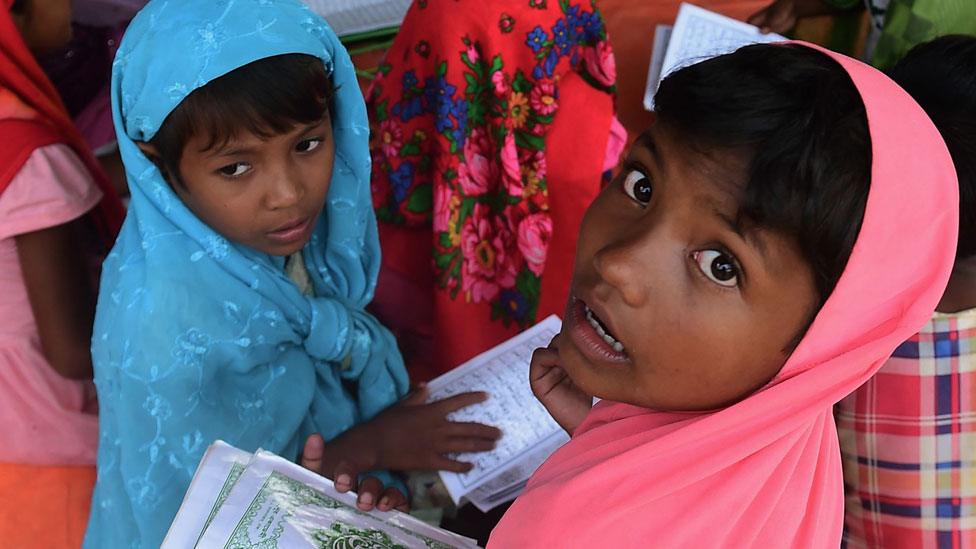
- Published1 February 2021
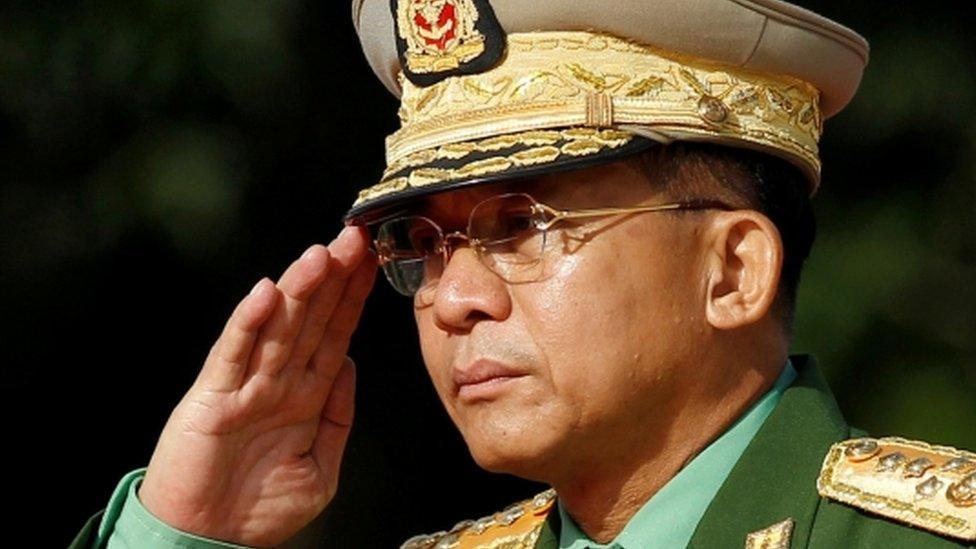
- Published31 October 2020
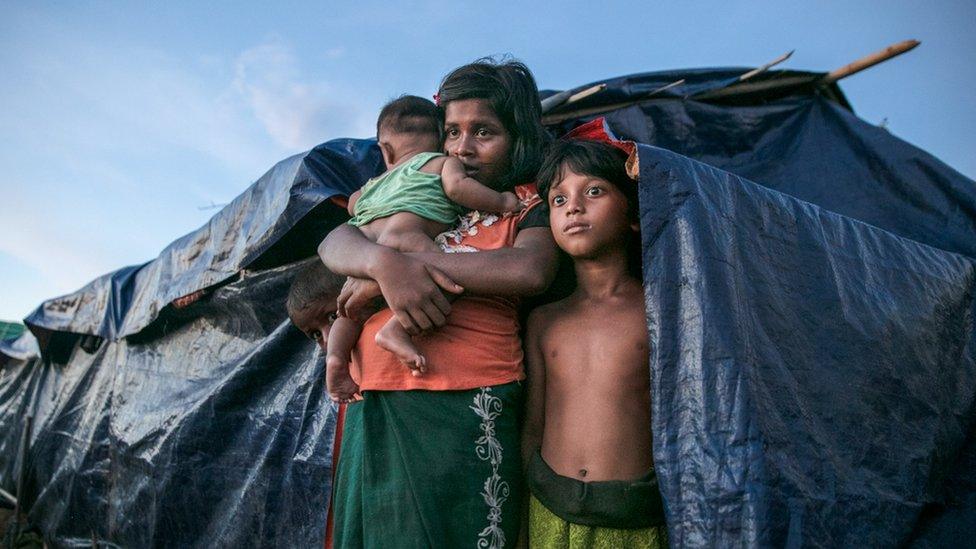
- Published6 December 2021
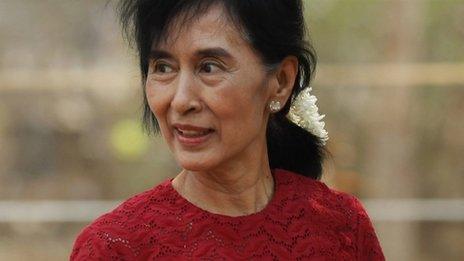
- Published1 February 2021
